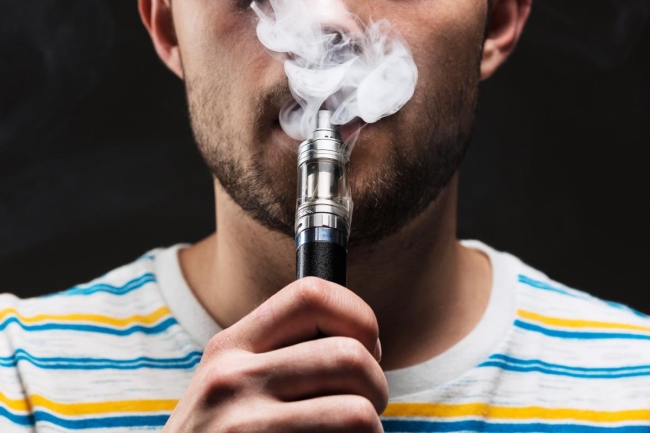You have /5 articles left.
Sign up for a free account or log in.

istockphoto.com/master1305
Texas A&M University system's new ban on e-cigarettes and vaping continues a trend of higher ed institutions responding to the spate of recent illnesses and deaths related to e-cigarette use and warnings from state and federal health agencies about the dangers of vaping.
John Sharp, the system's chancellor, cited the recent vaping-related deaths when he announced the ban Tuesday. A system spokesperson said Sharp was motivated by recent studies and statements from the Centers for Disease Control, which warned about the known and unknown risks of continued vaping.
"This health threat is serious enough that I want to see the ban include every building, outside space, parking lot, garage and laboratory within the Texas A&M system," Sharp said in a memo to the heads of the system's 11 universities and eight state agencies. The ban also should extend to every system facility and property, he said.
The vast public university system educates more than 153,000 students and has a presence in 250 of the 254 counties in Texas. It also has a comprehensive health science center in addition to the eight state agencies, all of which will be included in the ban.
“I do not want to take any unnecessary chances with the health of our students, faculty and staff,” Sharp said in the memo.
Campuses at another large university system, the California State University system, have been 100 percent smoke-free since 2017. The ban includes vaping and e-cigarette products. The chancellor and the Board of Trustees of the State University of New York have advocated since 2012 for legislation mandating tobacco-free campuses. Included in this push is messaging to ban the use of e-cigarettes as well. SUNY administrators say they will continue to work with state lawmakers to ensure passage of the legislation.
"In the meantime, we ask that campuses persist in designing and implementing strategies to drive their campuses toward the tobacco-free goal," the webpage for Tobacco-Free SUNY states.
Sharp urged A&M institutions to do the same and enact the ban immediately, but he noted that this may not be feasible.
“I would like to see the ban in place today, but I understand the practicalities of running major institutions,” he wrote in the memo. “So I will ask that the bans be implemented as soon as is practical.”
The sale of vaping paraphernalia will also be prohibited within the system under the ban.
Sharp credited Michael Young, the president at A&M’s flagship in College Station, for being the inspiration behind the ban.
Smoking is already banned in most places within the system, which is in line with campuses across the country. Much of the enforcement of the new ban will come down to individual presidents and campuses.
A&M is not the only Texas institution restricting smokers. The University of Texas System banned e-cigarettes in June 2017 as part of its prohibition of tobacco on all campuses.
The popularity of vaping among young people has increased over the past two years, even as studies about the dangers of the practice have proliferated, according to the University of Michigan's annual Monitoring the Future study. Studies also show that the number of college students using e-cigarettes to inhale marijuana is growing.
As more students pick up their vaporizer pens, e-cigarettes and USB apparatuses, colleges and universities are having to navigate how vaping fits in with their no-smoking policies. Many colleges and universities already ban smoking or the use of tobacco products on campus, which includes vaping, and therefore would not be impacted by statewide bans.
The American College Health Association recommends that institutions develop strict no-tobacco language in their smoke-free policies, to include all methods of smoking including e-cigarettes.
The state of Massachusetts recently put a four-month ban on the sales of vape products, and this summer San Francisco became one of the first major U.S. cities to ban the sale of e-cigarettes.
Thirteen states have statewide vaping bans anywhere smoking is banned.








